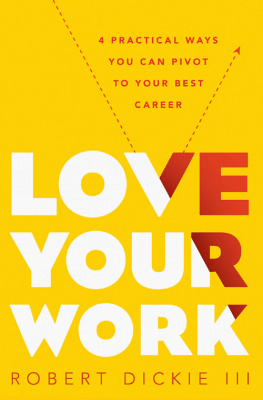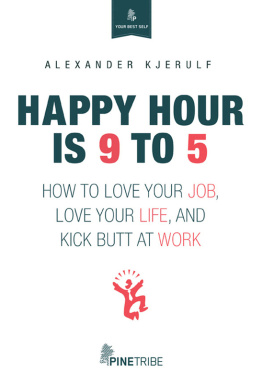CONTENTS
INTRODUCTION
A person who works in an art by which he can attain both profit and virtue together must count himself lucky.
Cornelis de Bie, The Golden Cabinet of the Noble and Liberal Art of Painting, 1662
R ome, 1509. Michelangelo was not enjoying himself. Instead, he was painting the ceiling of the Sistine Chapel, twisting and craning his body into awkward positions while irritating drops of paint fell on his face. In a poem addressed to his friend Giovanni da Pistoia, he complains, Ive grown a goiter from this trap Im in, and In front I feel my skin stretched lengthwise, but in back it crimps and folds. This is my state: arched and indented like a Syrian bow. Troubling, too, was his mental state: he wrote of strange thoughts that ran through his mind, which were not to be trusted. Throwing his proverbial hands up in the air, Michelangelo concludes his missive, I am not in the right placeI am not a painter.
Michelangelos words are at once familiar and surprising. : both the anxious, self-doubting mental labor of planning and organizing such a complex work, and the aching, sweaty labor of applying pigment under papal directive.
The mythologies of artistic labor, as fueled by passion, genius, mental illness, faith, drug abuse, longing, mystical visions, and, of course, love, is vast. But, ultimately, all of these romanticized motivations are masks, hiding the simple fact that work is work, even if it produces something cherished or beautiful. In fact, most sublime and heavenly products of human artifice, from temples to concertos, also involve a painful panoply of goiters, spasms, eyestrain, and blisters. And then there are the mental anguishes of exasperation and tedium. While such works may be inflected by individual genius, they are also documents of historical power structures with their own specific expectations and limitations. As art historian Michael Baxandall Whatever Michelangelos motivations for painting the Sistine Chapels ceilingwages, renown, its hard to say no to a popelove for the work of ceiling painting was not among them.
Our myths about what motivates us to work extend far beyond the visual arts. Today, one of the most powerfully appealing narratives about work is the one about the worker who performs work that he or she loves. These ideal workers become successful and wealthy precisely because they love their work, which they committed to through a rational and impediment-free decision-making process that led them to the most perfect and enjoyable way to spend the hours between 9 and 6. In this story, wealth, pleasure, and work are intertwined and inseparable. Its a seductive trinityone that beckons to each new generationand indeed it has inspired great sacrifices by those striving to live up to it.
Central to the myth of work-as-love is the notion that virtue (moral righteousness of character) and capital (money) are two sides of the same coin. Where there is wealth, there is the hard work, the industriousness, and the individualistic dash of ingenuity that makes it possible. Such logic is the very bedrock of the American Dream and similar ideas about striving social mobility around the globe. Apply oneself according to these principles, hold fast to them amid the fickle gales of the free market, and, as Willy Loman tells his boys in Death of a Salesman, The greatest things can happen! If only.
The virtues of pursuing capital are fluid, and they have changed over time. The seemingly fixed qualities that we valuehard work and industriousnessonce required the deferral of pleasure, the sacrifice of immediate gratification for future reward, perhaps awaiting us in the afterlife. Well into the twentieth century, work was virtuous precisely because it was not fun, because it was in the service of a project grander and more eternal than fleeting individual pleasure. This particular imagining of virtuous work is embedded in Americas foundational mythology. Although he owned a plantation cultivated by slave labor, Thomas Jefferson sketched a pastoral, if highly paternalistic, vision of subsistence farm labor in Notes on the State of Virginia (1785): Those who labor in the earth are the chosen people of God, if ever he had a chosen people whose breasts he has made his particular deposit for substantial and genuine virtue. Jeffersons imaginary cultivators are free from moral corruption because they work in a precapitalist mode; these independent farmers do not depend on the casualties and caprice of customersit); instead, because subsistence farming is totally consuming laborthe farmer must constantly tend to his own soil and industryhe becomes virtuous through his disengagement from worldly machinations.
Today, ideal work is the combined pursuit of pleasure and capital. Fantastically popular embodiments of wealth and success, like Oprah Winfrey, openly and proudly proclaim their success to be the product of self-love. Winfrey exhorts her fans to live your best life. Whole Foods CEO John Mackey explicitly links love and corporate success, asserting that love creates creative competitive advantage in a healthy marketplace. On the surface, todays promises of work seem so much more thrilling than those of previous generations. Why settle for a thirty-year fixed-rate mortgage and a perfectly functional eight-year-old car when you can get rich becoming your best self and have a blast along the way?
And yet despite the love talk, workers today are doing more for less. Real household income in the United States has stagnated or fallen for the overwhelming majority of Americans, even as they put in more hours on the job, or jobs, as is increasingly the case. Benefits are eroding rapidly, and workers are losing control over the conditions of their labor regarding everything from scheduling to safety regulations. Meanwhile, wealth continues to concentrate in the hands of a tiny few not because of wages earned, but, as Thomas Piketty recently showed, because capital grows in value far more quickly than does wage income. Owning, not working, is what generates the most significant wealth. Yet, while winner-take-all capitalism grows ever more ruthless, rhetorics of love, passion, and bliss regarding waged labor proliferate. Are we all just delusional?
Perhaps, but its hard to step outside of the work-as-love hall of mirrors weve constructed for ourselves. Seductive slogans about work as self-actualization and images of blissful labor are ubiquitous. Where passion leads, success follows announces a placard advertising an MBA program on a commuter train. Cosmopolitan magazine runs a regular feature Get That Life profiling young women with quirky, fun careers: bridal boutique owner, urban farmer/artist. The very title Get That Life, explicitly fetishizes the cool job, holding it up as an object of desire while simultaneously making it beguilingly accessible. The cool job is there, waiting for you. All you, the reader, have to do is get iteven though many of the profiled women have prestigious (expensive) degrees, professional connections, and ample specialized experience. Projections of work-as-love have also seeped into the realm of low-wage service work: a maid-service company advertising on Craigslist is currently looking for a passionate individual to clean houses. A couple of generations ago a similar ad might have used the word responsible.
Considering the vast disjunction between popular fantasies about work and the actual returns work provides most workers that DWYL is an essentially narcissistic schema, facilitating willful ignorance of working conditions of others by encouraging continuous self-gratification. I have also argued that DWYL exposes its adherents to exploitation, justifying unpaid or underpaid work by throwing workers motivations back at them; when passion becomes the socially accepted motivation for working, talk of wages or reasonable scheduling becomes crass. This book examines the many expectations about what work can provide under the DWYL creed, and the sacrifices that workers make in order to meet those expectations.







